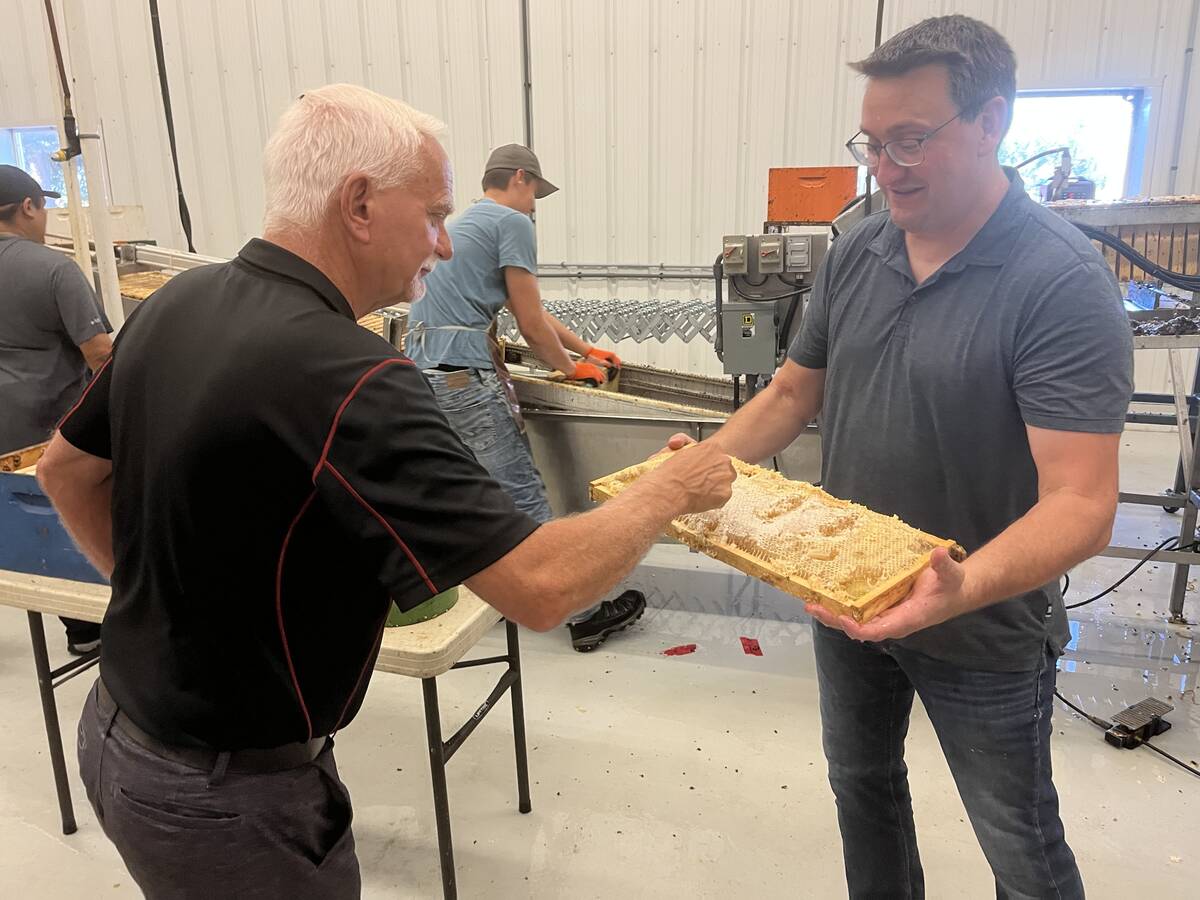MUENSTER, Sask. – Wendy Moellenbeck admits it’s unusual that half of her Grade 12 classmates are still living in the central Saskatchewan area from which they graduated in the late 1990s.
“It’s a lifestyle you have to choose,” said Moellenbeck, who acknowledges most young people wander away in search of jobs or education.
She took political studies from the University of Saskatchewan without leaving town. St. Peter’s College in her home town offers university classes without the financial costs and emotional changes of moving to a big city. But in January, she will leave Muenster for a six-month stint in Regina to work in the Saskatchewan legislature’s intern program.
Read Also

Alberta honey business ‘thrives’ despite bumpy beginnings
Thrive Honey showcases its honey production in market where Alberta produces 40 per cent of all honey produced in the country
Jobs are the key to keeping youth at home, she told an Oct. 26 session of the Canadian Rural Revitalization Foundation conference meeting in Muenster last week. She urged rural communities to work together as a regional system to retain schools, churches, arenas and businesses.
“Petty local politics that divide communities will only lead to their demise.”
Moellenbeck said communities should pool their money and invest dollars in campaigns to recruit young people with the skills wanted in the region. Sell the region at college career fairs and be prepared to assist new entrepreneurs. There are opportunities in further processing agricultural goods that will bring new skills to rural areas such as chemists, marketers and administrators.
Practical help to encourage former students to locate in a small town can be in the form of offering more rental housing, tax incentives or student loan assistance.
Not all the skills needed are university-based. There are gaps in the trades. Sociologist Dianne Looker of Acadia University said that shortage is due to the biases of high school teachers and counsellors who went to university and promote that career path. The trades are seen as a consolation prize. She said rural businesses should go to the schools in their home towns and tell the students what skills they are looking for. Moellenbeck noted the trade shortage is also a gender issue since few women want or expect to do carpentry or electrical work.
Looker said studies of rural youth show more get jobs fresh from high school and fewer go on to higher education compared to urban youth. That is related to the costs of leaving home and the emotional ties to their community.
Looker said a rural education in a small school is better in some ways because although course options are limited, the young people all participate in sports, volunteer and extra-curricular activities. They build leadership ability and self-confidence by “laying claim to adult roles.”
However, not all rural youth get to participate. Those who must travel by bus lose out on the after-school events. Audience member Barb Stefanyshyn-Coté of Leask, Sask., asked why more towns did not try to keep their small schools for the primary grades and only bus older ones.
“It wouldn’t hurt if we kept the younger kids closer to home. I don’t want my daughter in Grade 1 on a bus for an hour but I have no problem with a 13 year old.”
Looker said it is ironic that the internet and other technology that can bridge distances and encourage rural development are present in the cities first and country last.
She said more research is needed to determine how to keep rural youth at home.
However, she said studies show the answer does not lie in quick-gain industries such as mines and mills. Rather, she said the answer may lie more with the local quality of life than the wages people can earn.
















